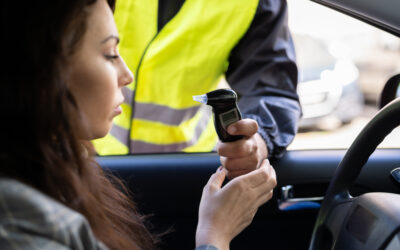
Some key things to know about a second DUI charge in California are that the fines are higher, license suspensions last longer, and judges have fewer chances to reduce the sentence. Many people learn that a second offense feels very different from the first. What once seemed like a single mistake now appears as a pattern in the eyes of the court.
If you are convicted of a second DUI charge, the consequences can affect your license, job, and freedom. State laws are strict, the court process moves quickly, and the penalties grow with every conviction. For all these and other reasons, getting early legal guidance matters.
If you or a loved one is facing this situation, a Los Angeles DUI lawyer can guide you through the court and the Department of Motor Vehicles (DMV) process. They’ll explain sentencing options and work to protect your record as much as possible.
Facts to Know About a Second Offense DUI Case in California
When you’re facing a second DUI charge, you may wonder what happens to your license, what kind of punishment to expect, or if there is any chance that you can avoid jail time. Each case is different, but here are seven things to know that explain how second DUI cases work in California, what penalties apply, and how a lawyer can help you move forward.
1. California Has a 10-Year ‘Lookback’ Period
California Vehicle Code § 23540 defines a second DUI as any conviction that happens within 10 years of a prior DUI offense. The court counts any prior DUI or “wet reckless” conviction from another state if it falls within that same time frame.
If your last DUI happened more than 10 years ago, the new case is treated as a first offense. However, if it’s within that 10-year window, you face tougher penalties, including longer jail time and license suspension.
2. Penalties Increase With Each DUI Offense
A second DUI conviction usually brings tougher consequences than a first one. Judges must follow California law, which requires:
- Jail time: Between 96 hours and one year in county jail.
- Fines: About $390 to $1,000, plus penalty assessments that can triple the total cost.
- License suspension: Two years for a standard case. You may apply for a restricted license after a certain period with an ignition interlock device (IID).
- Probation: Up to five years of informal probation.
- DUI school: An 18- to 30-month alcohol education program.
These penalties can grow worse if your blood alcohol concentration (BAC) was high, an accident occurred, or a child was in the car.
3. DUI Diversion Programs Are Rare But Possible
California allows some DUI offenders to enter diversion programs, which focus on treatment and education instead of jail time. However, most second offense DUIs do not qualify for diversion under current laws.
Diversion programs exist mainly for first-time DUI offenders, such as:
- Pretrial diversion for mental health or veterans (Penal Code § 1001.80, § 1001.36)
- Alcohol or drug education programs approved by the court
- Community–based treatment options for alcohol dependency
A person might still qualify for these if their lawyer can show that treatment will reduce future risk or if special circumstances apply, such as a co-existing mental health condition. Eligibility can vary by county and courtroom because judges have different views on diversion and alternative sentencing.
These programs exist to help reduce repeat offenses, ease jail overcrowding, and focus on rehabilitation instead of punishment.
4. You Can Ask About Alternative Sentencing Options
Even if you are not eligible for diversion, the court might allow alternative sentencing, such as:
- House arrest or electronic monitoring instead of full jail time
- Work release programs that let you serve your sentence through community labor
- Residential treatment or sober living programs
- Judges decide these options based on your driving record, BAC level, and whether the new DUI caused harm or property damage. Asking your lawyer about these choices early can affect your outcome.
5. License Suspension Rules Differ by Case
The California Department of Motor Vehicles (DMV) handles license suspensions separately from the court system. After a second DUI, you face both:
- A criminal suspension ordered by the judge
- An administrative suspension from the DMV, which usually starts right after an arrest
You have only 10 days after your arrest to request a DMV hearing to fight the suspension. Missing that deadline almost always means an automatic suspension.
Many drivers choose to install an IID to regain limited driving privileges. The IID requires you to blow into the device to prove you are sober before starting the car.
6. A Second DUI Can Affect Employment and Insurance
A DUI conviction stays on your driving record for 10 years, which can raise car insurance costs and limit job opportunities, especially in positions that require driving.
Employers and insurers may view repeat DUIs as a sign of ongoing risk. Completing treatment programs or maintaining a clean record afterward can sometimes help rebuild trust and lower long-term effects.
7. A Lawyer Can Explain Court Rules and Help You Follow the Right Legal Steps
Second DUI cases move quickly and involve DMV and criminal court actions. A lawyer familiar with California DUI law can:
- Review whether your traffic stop and arrest followed legal procedure
- Challenge the accuracy of any breath or blood tests you took
- Request alternative sentencing or reduced charges
- Represent you at hearings with the DMV and court proceedings
- Explain license reinstatement steps
Every DUI case is unique, and legal guidance can help prevent mistakes that lead to harsher penalties or longer suspensions.
Talk With an Attorney to Learn How Second Offense DUI Cases Work in California
You can connect with Los Angeles DUI Lawyer, a referral service, for more answers about your penalties, license, or eligibility for treatment programs. We have been putting people in touch with skilled defense teams for decades.
A lawyer can review your history, look for possible defenses, and guide you through the DMV hearing and the steps involving the court. They can also advise whether you qualify for diversion or alternative sentencing.
The sooner you call, the sooner you will know what to expect as your case moves forward. Call today to get started.







